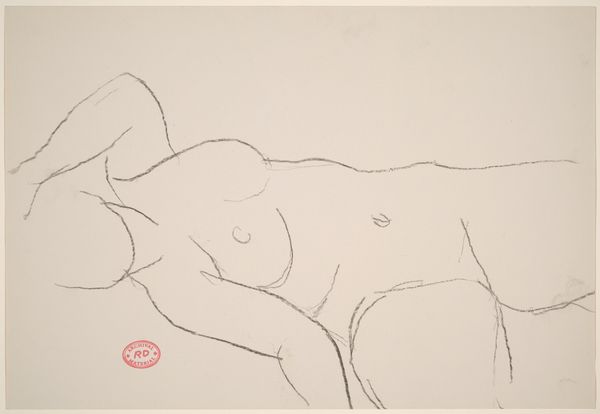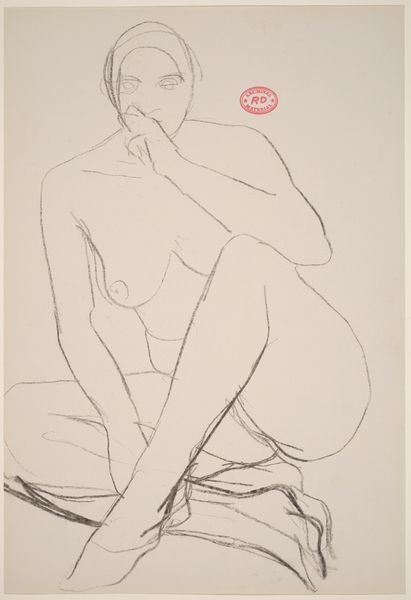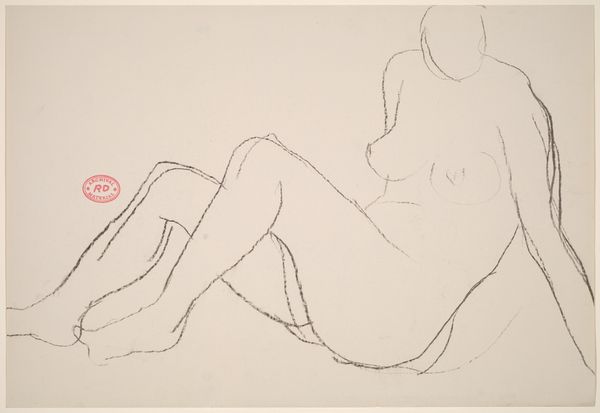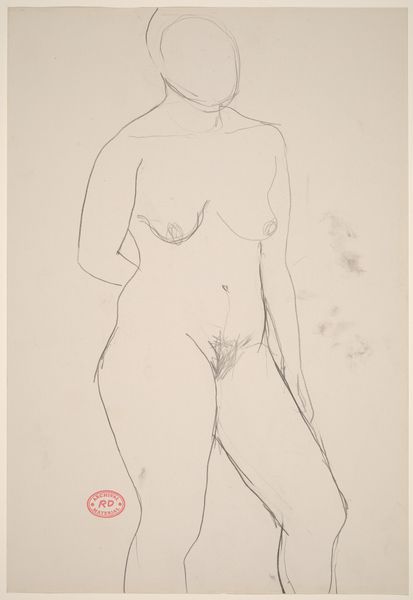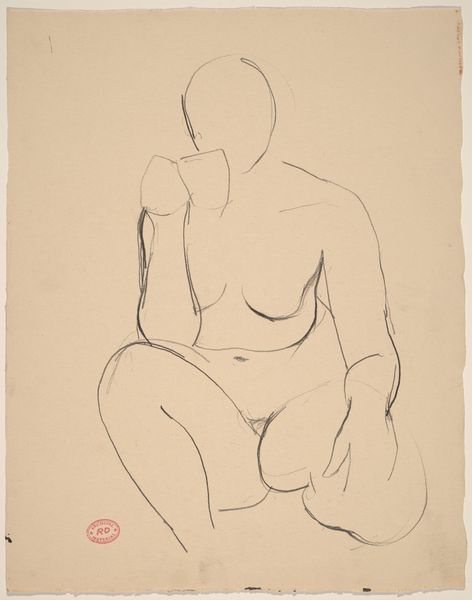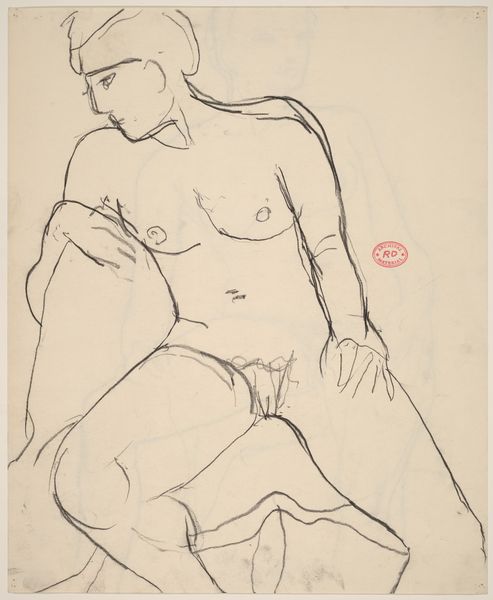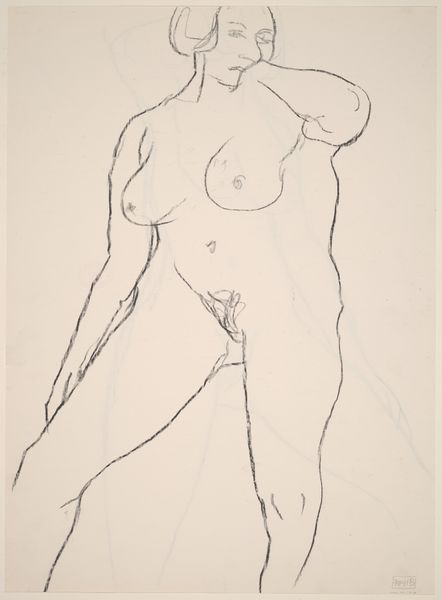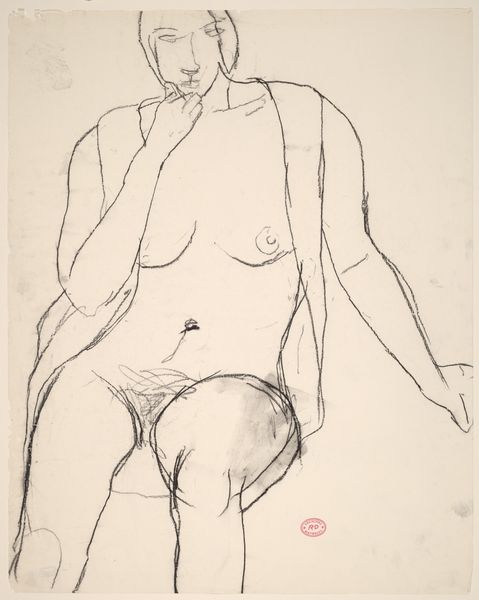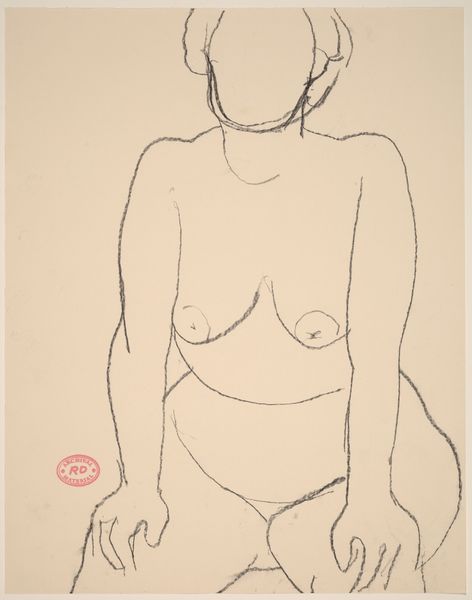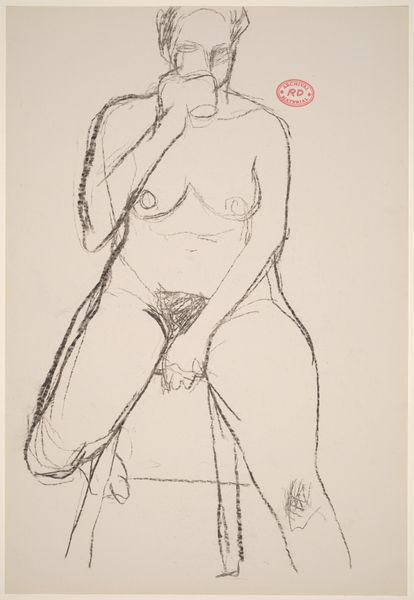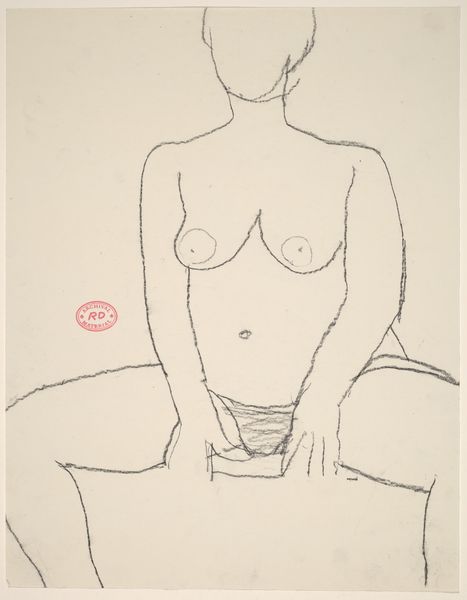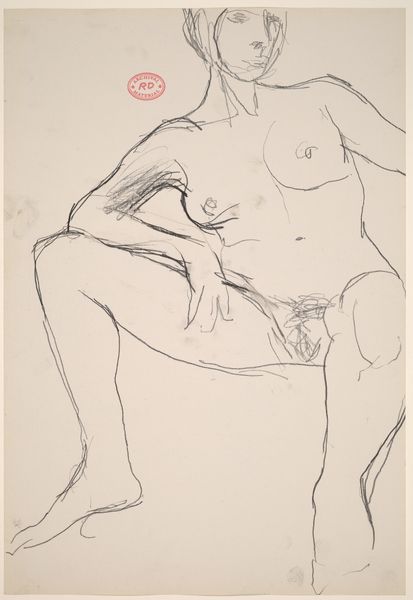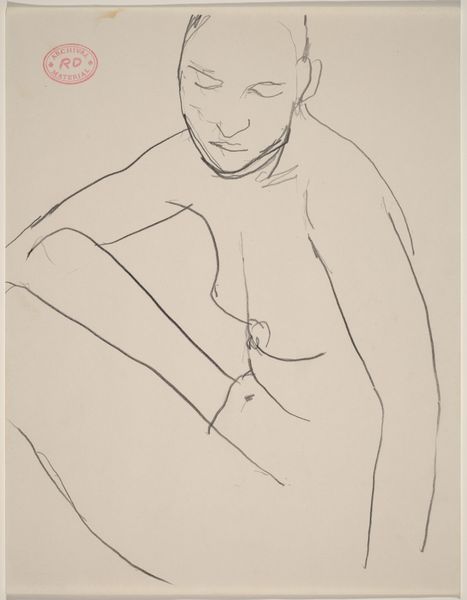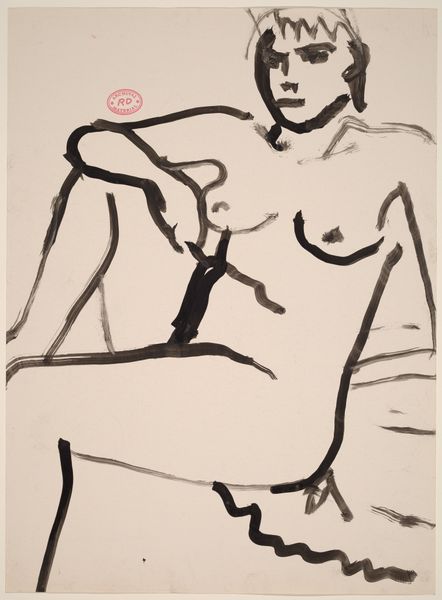![Untitled [seated female nude with right arm over support] by Richard Diebenkorn](/_next/image?url=https%3A%2F%2Fd2w8kbdekdi1gv.cloudfront.net%2FeyJidWNrZXQiOiAiYXJ0ZXJhLWltYWdlcy1idWNrZXQiLCAia2V5IjogImFydHdvcmtzL2E0MTgwMzk0LTUxMzYtNDM1NS04NTFlLWRiYjk4OWZhYmY5ZC9hNDE4MDM5NC01MTM2LTQzNTUtODUxZS1kYmI5ODlmYWJmOWRfZnVsbC5qcGciLCAiZWRpdHMiOiB7InJlc2l6ZSI6IHsid2lkdGgiOiAxOTIwLCAiaGVpZ2h0IjogMTkyMCwgImZpdCI6ICJpbnNpZGUifX19&w=3840&q=75)
Untitled [seated female nude with right arm over support] 1955 - 1967
0:00
0:00
drawing, pencil
#
pencil drawn
#
drawing
#
figuration
#
bay-area-figurative-movement
#
pencil drawing
#
pencil
#
nude
Dimensions: sheet: 40.6 x 27.9 cm (16 x 11 in.)
Copyright: National Gallery of Art: CC0 1.0
Editor: So, this is Richard Diebenkorn's "Untitled [seated female nude with right arm over support]," created sometime between 1955 and 1967. It’s a pencil drawing. I find it very raw and immediate, like a study. What do you make of it? Curator: I find it interesting to consider this drawing within the context of post-war material scarcity and artistic labor. Diebenkorn chose pencil – a humble, readily available material – to explore the classical subject of the nude. The act of drawing itself, the repetitive mark-making, becomes a form of labor. Consider also how the apparent unfinished state reflects a broader trend of artists grappling with traditional art production, disrupting conventional ideas of the "masterpiece.” How do you see this relating to Diebenkorn's other work? Editor: I'm familiar with his Ocean Park series. Those are very polished, using so much paint. This feels like a complete departure, almost subversive in its simplicity. Curator: Precisely! We can view it as a conscious deconstruction of art-making. The choice to expose the raw lines, the erasures, challenges the traditional value placed on skill and perfect execution. It makes you question what constitutes “finished” art, and the effort put into producing it, especially when thinking of its time in history. Where did art production fit into American life then, do you think? Editor: That's true! Seeing the work this way highlights not just what is on the page, but the very act of its creation and the time, and availability of simple resources it took to produce. That's definitely shifted my perspective. Curator: Indeed, focusing on process helps unveil the conditions of its production, as well as a critical commentary on artistic convention itself. Editor: I'll definitely look at Diebenkorn's work differently now. Thank you.
Comments
No comments
Be the first to comment and join the conversation on the ultimate creative platform.
